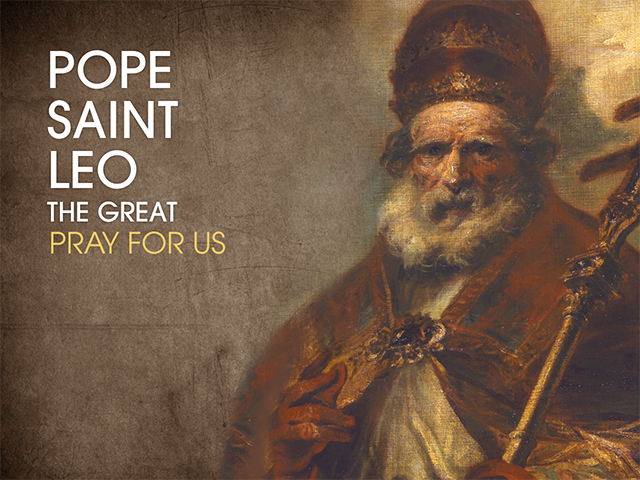



Pope St. Leo the Great (c. 400–461 A.D.) was born in Tuscany to an aristocratic family. After serving as deacon under two popes he became the Roman Pontiff from 440 to 461 A.D. He was one of the greatest Holy Fathers the Church has known; he was the first pope, and one of only two, to bear the title “Great.” He guided the Church through the turbulence of the collapse of the Roman empire, waves of barbarian invasions, widespread disintegration of morality, and many dangerous heresies including Pelagianism and Manichaeanism. His feats include persuading the Emperor Valentinian to recognize the primacy of the Bishop of Rome; preventing a doctrinal split in the Eastern churches; persuading Attila the Hun to turn back and forsake his invasion of Italy; and convincing the Vandals under their leader Genseric not to pillage the city of Rome or harm its inhabitants. He championed the Church and the Catholic faith in an uncertain era by maintaining unity, defending orthodox doctrine with clarity, and preaching vigorously against false teaching. By his strong influence he changed the course of European history; he was known not only as a leader of the Church but also as the protector of all of Rome. Pronounced a Doctor of the Church in 1754, many of his writings survive today. St. Leo the Great's feast day is November 10th.